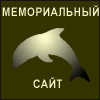| |
(5) Ladislas Farago, The Game of the Foxes (London: Hodder & Stoughton, 1972),
p. 86.
(6) David Kahn, Hitler's Spies (New York: Macmillan, 1978), p. 63.
(7) Farago, Foxes, p. 36.
(8) Thomas H. Etzold, 'The (F)utility Factor: German Information Gathering in
the United States, 1933 – 1941', Military Affairs, vol. 39, no. 2 (1975), p. 78.
(9) ibid., p. 79.
(10) ibid.
(11) ibid.
(12) ibid., p. 80.
(13) Manfred Jonas, 'Prophet without Honour: Hans Heinrich Dieckhoffs Reports
from Washington', Mid-America, vol. 47 (July 1965), pp. 222 – 33.
(14) Page, Leitch and Knightley, Philby, p. 46.
(15) ibid., p. 61.
(16) Philby, My Silent War, p. xix.
Глава 6
(1) R. J. Jeffreys-Jones, 'History on Trial: a Critique of the CIA and its
Critics', p. 6. Paper delivered at the 9th Annual Meeting of the Society for
Historians of American Foreign Relations, Catholic University of America,
Washington DC, 4 – 6 August 1983.
(2) Andrew, 'Governments and Secret Services', p. 181.
(3) Farago, Foxes, dustjacket.
(4) Corey Ford, Donovan of OSS (Boston, Mass.: Little, Brown, 1970), p. 112.
(5) Oldfield in interview with author, 13 July 1979 .
(6) Malcolm Muggeridge. Chronicles of Wasted Time. II: The Infernal Grove
(London: Collins, 1973), p. 149.
(7) Hinsley, British Intelligence, vol. 1, p. 91.
(8) Page, Leitch and Knightley, Philby, p. 121.
(9) 'The Profession of Intelligence', part 2, BBC Radio 4, 12 March 1980 .
(10) West, M16. p. 109.
(11) De Courcey in letter to author, 16 May 1981 .
(12) West, M16. p. 137.
(13) Interview with Peter Oilman, 23 March 1978 , unpublished.
(14) PRO, CAB/66/9/WP(40)244, 4 July 1940 , 'Imminence of a German Invasion of
Great Britain '.
(15) JIC(40)376, 12 November 1940, quoted in Hinsley, British Intelligence,
vol. 1, p. 295.
(16) Private letter to author, 7 September 1967 .
(17) West, M16, p. 109.
(18) Philby, My Silent War, p. 4.
(19) Hinsley, British Intelligence, vol. 1, p. 278.
(20) Michael Elliot-Bateman (ed.). The Fourth Dimension of Warfare, Vol. 1.
Intelligence! Subversion! Resistance (Manchester: Manchester University Press,
1970), p. 53.
(21) David Stafford, Britain and European Resistance, 1940 – 1945 (London:
Macmillan, 1980), p. 209.
(22) Kerby in interview with Page, Leitch and Knightley, 1967.
(23) M. R. D. Foot, 'Was SOE any Good?', in W. Laquer (ed.). The Second World
War (London and Beverley Hills, Calif.: Sage 1982), p. 251.
(24) See Werner Rings, Life with the Enemy: Collaboration and Resistance in
Hitler's Europe 1939 – 1945 (London: Weidenfeld & Nicolson, 1982) for examples.
(25) David Stafford, 'The Detonator Concept: British Strategy, SOE and
European Resistance after the Fall of France', Journal of Contemporary History,
vol. 10(1975), pp. 215 and 196 respectively.
(26) See, for example, R. Crossman and K. Martin, 100, 000, 000 Allies If We
Choose. pamphlet, July 1940.
(27) Foot, 'Was SOE any Good?', p. 247.
(28) Anthony Verrier, Through the Looking Glass (London: Cape, 1983), p. 37.
(29) Bradley F. Smith, The Shadow Warriors: O.S.S. and the Origins of the C.I.
A. (London and New York: Deutsch and Basic Books, 1983), p. 85.
(30) Milovan Djilas quoted in Stafford's book Britain and European Resistance,
p. 210.
(31) Richard Usborne, quoted in Mark Wheeler, 'The SOE Phenomenon', in Laquer,
Second World War, p. 195.
(32) Foot, 'Was SOE any Good?', p. 243.
(33) PRO, 32/1061 l/MA/08233, Home Defence Security Executive, 20 March 1941.
(34) Respectively: interview with Page, Leitch and Knightley, 1967; and quoted
in Verrier, Looking Glass, p. 350.
(35) The Stockholm International Peace Research Institute has investigated the
German story without any conclusive result.
(36) Jean Overton Fuller, The German Penetration of SOE (London: Kimber, 1975),
pp. 175 – 6.
(37) William Stevenson, A Man Called Intrepid: the Secret War 1939 – 1945
(London: Macmillan, 1976), p. 457.
(38) Foot, 'Was SOE any Good?', pp. 248 – 9.
(39) Louis de Jong, 'The Great Game" of Secret Agents', Encounter, January
|
|




